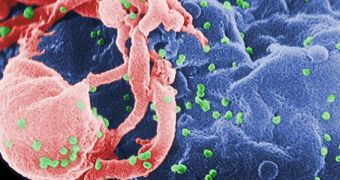Yesterday, November 21, US President Barack Obama signed and enacted a new piece of legislation, which essentially lifts the federal ban on research being conducted into the merits of transplanting organs from one HIV-infected patient to another.
The HIV Organ Policy Equity (HOPE) Act passed through both chambers of Congress fairly easily, and made its way into President Obama's office almost in its initial form. The Act is based on the presumption that such transplants between AIDS patients will not decrease recipients' quality of life.
With the HOPE Act signed into law, scientists will now be able to start conducting research on the merits of such transplants. It will fall under the jurisdiction of the US Secretary of Health to determine whether or not the results of these investigations are encouraging enough to actually allow for transplants to take place in the future, The Verge reports.
The human immunodeficiency virus (HIV) is the cause of acquired immunodeficiency syndrome (AIDS), a condition that weakens the human immune system so that other diseases or pathogens can infect people at will. Modern therapies have prolonged life expectancy for patients to near-normal values.

 14 DAY TRIAL //
14 DAY TRIAL //